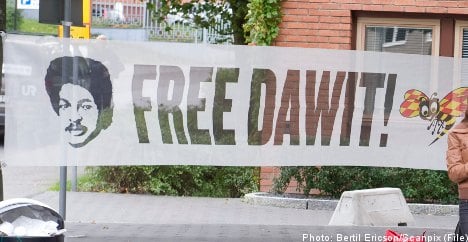John Wirfält and his colleague Sara Murillo Cortes plan to be incarcerated at the Kronoberg facility in Kungsholmen, Stockholm, to raise awareness of the ongoing cases involving Dawit Isaak, Martin Schibbye and Johan Persson and also to openly criticise the government for not doing more to get them released.
Swedish-Eritrean journalist Dawit Isaak has been held in an Eritrean prison since 2001 without trial and is considered a traitor by the Eritrean government.
Amnesty International has highlighted his case frequently and has called for his immediate and unconditional release.
Freelance reporters Martin Schibbye and Johan Persson have been held in an Ethiopian jail since the beginning of July, facing terrorist charges.
The two Swedish journalists were allegedly in the country investigating Lundin Petroleum, a Swedish oil and mining company, at the time they were arrested together with members of the ONLF guerilla, according to reports in the Swedish media.
Wirfält told daily Dagens Nyheter (DN), ”This is a new way to draw further attention to the imprisoned Swedish journalists Dawit Isaak, Martin Schibbye and Johan Persson. We want to show our criticism of the foreign ministry, which has been the case with Dawit for several years, but also in the second case (Schibbye and Persson). We also want to highlight the vulnerable situation that freelance journalists find themselves in when they go out without having the back-up of an editorial team.”
He added that they are hoping many more journalists will join in with their action, claiming that 40 others have already pledged their support.
The protesting pair plan their prison stay sometime before October 15, when the trial of Schibbye and Persson is set to take place in Ethiopia.


 Please whitelist us to continue reading.
Please whitelist us to continue reading.
Member comments